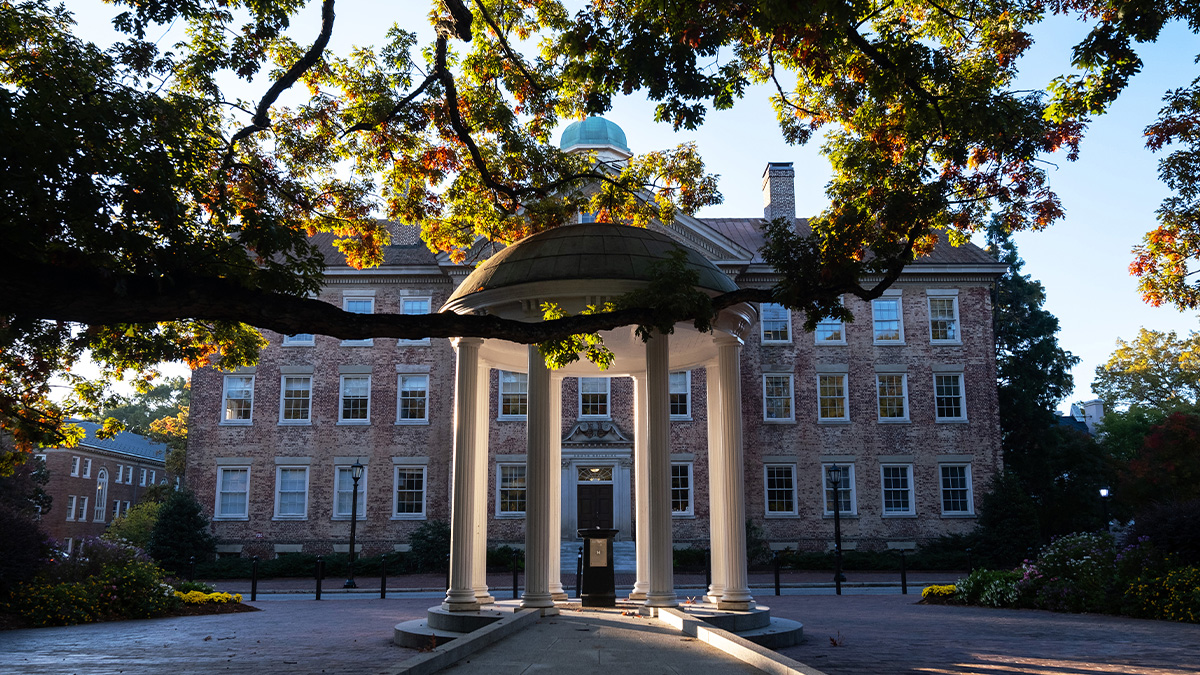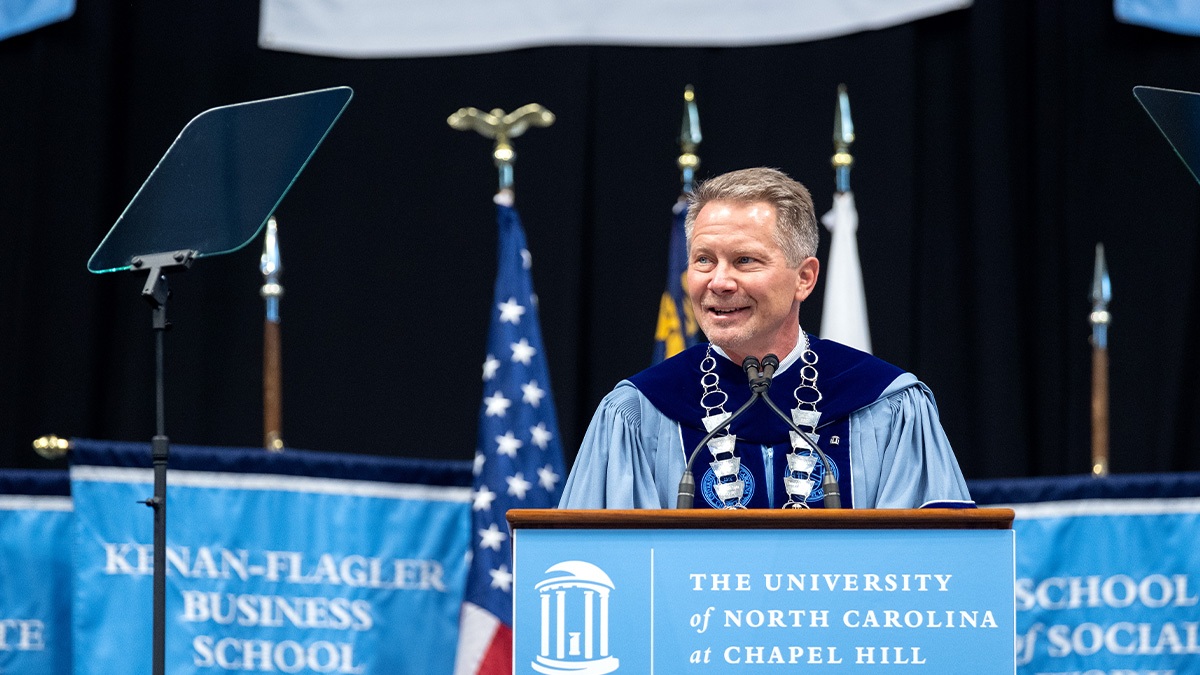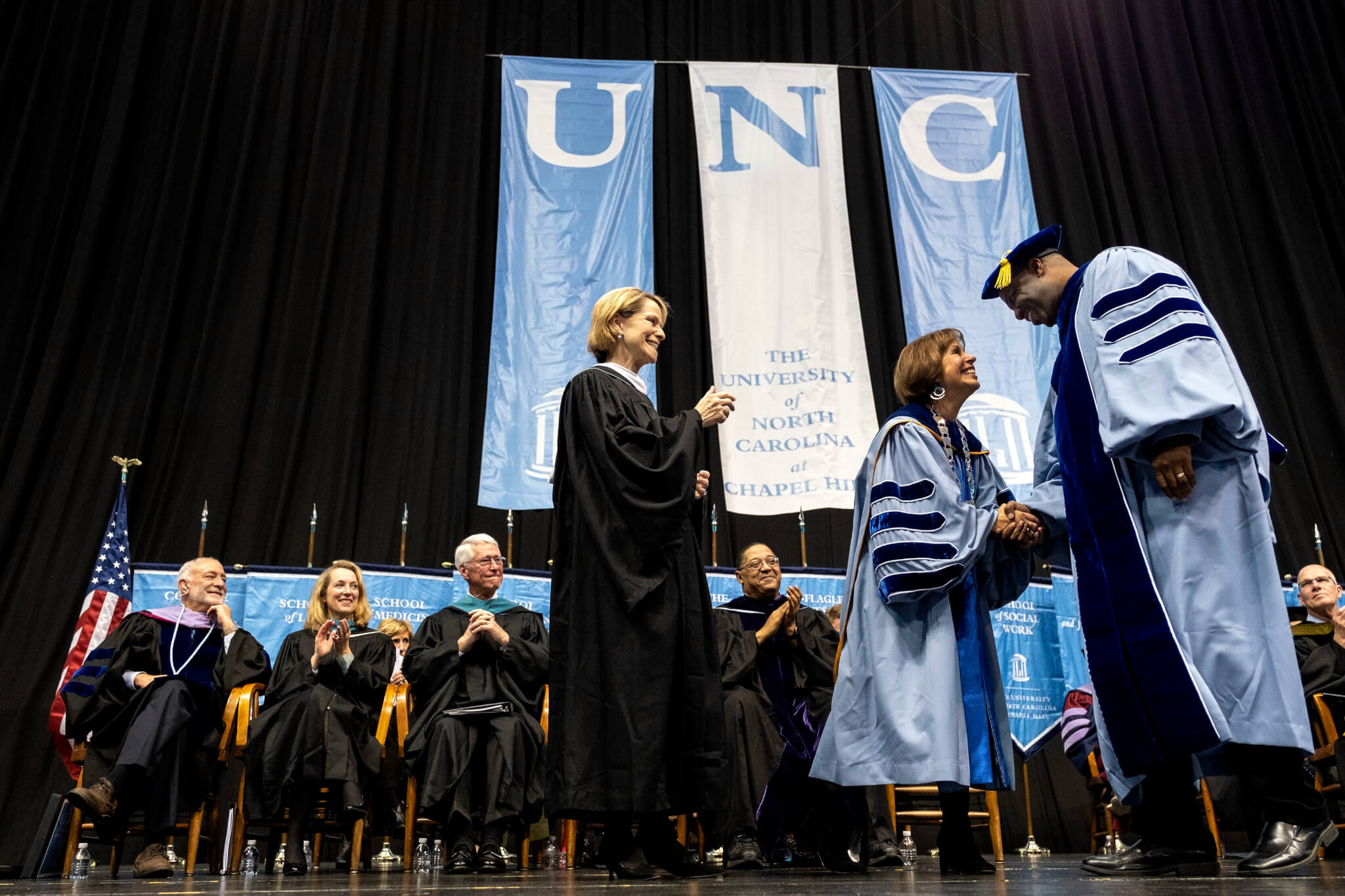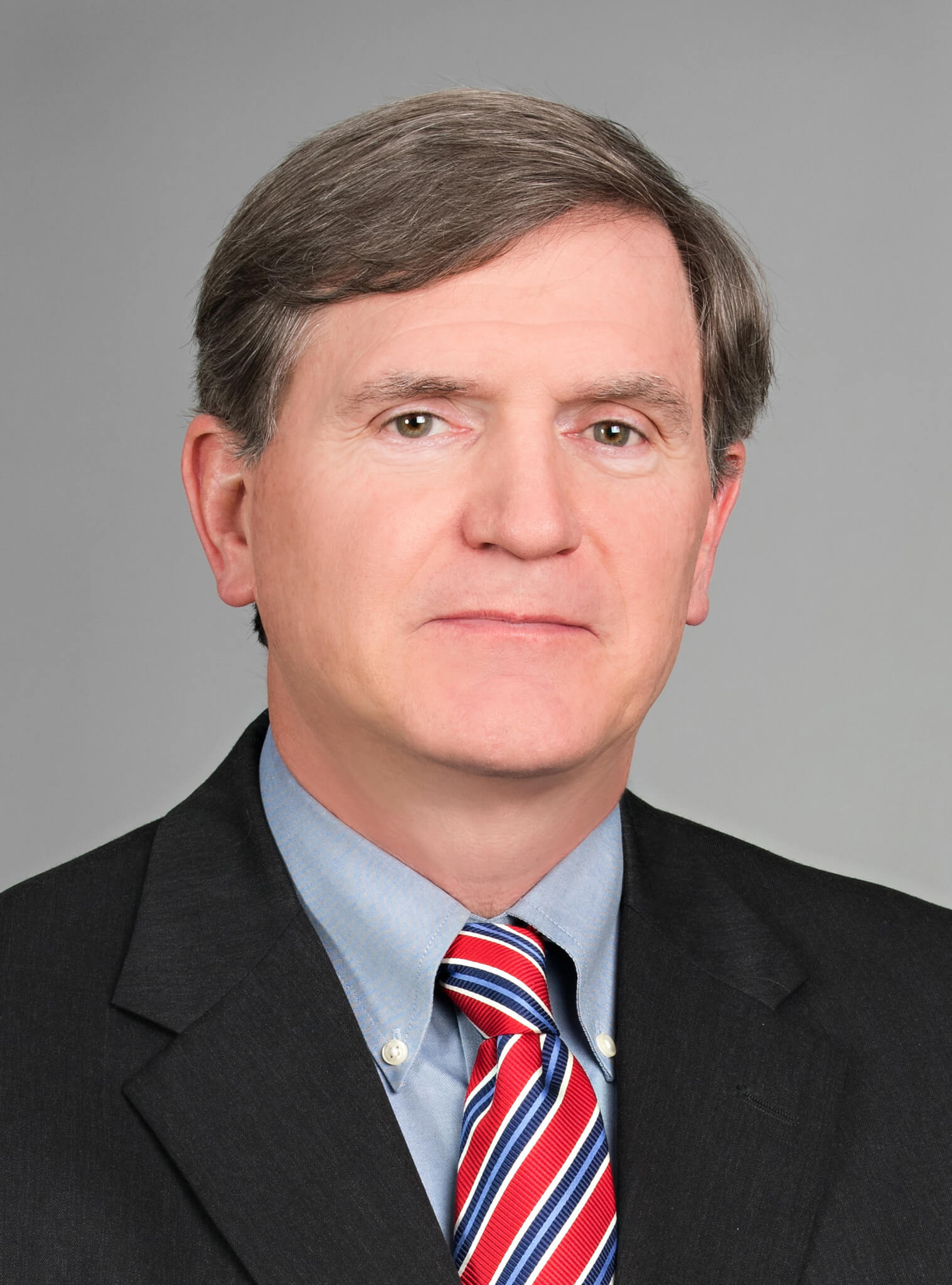Making the campus more inclusive for our community
I am writing to share with you some initial steps we are taking to make our campus more welcoming to all members of our community.
Dear Campus Community,
I am writing to share with you some initial steps we are taking to make our campus more welcoming to all members of our community. Over the last several weeks, students, faculty, and staff have spoken passionately about the challenges they face as a result of racism and other persistent forms of prejudice. Others have described, in close detail, the ways in which our not acknowledging these challenges has compromised their experience at Carolina. I have been greatly moved by the pain, frustration, and weariness that have been expressed, and I am profoundly grateful to all who have spoken, and especially to our students, for the courage and resolve they have shown.
As an institution with a long and rich tradition of shared governance, Carolina thrives when all of us have a say in how we fulfill our promises as the nation’s first public university. No one person alone, and no one group alone, can make this happen. I am determined to chart a course where we can all work together to create and sustain the kind of community where all feel welcome, respected, and free to pursue their dreams and goals and become their best and truest selves.
Toward that end, I want to make it clear that no member of our community is less important than any other. None of us should be made to feel—in our classrooms, libraries, or laboratories, or in our offices or residence halls, or in any public or private place—that our presence here is anything other than an achievement rightly earned and celebrated. Nor should any of us feel reluctant to speak freely about our beliefs, or be excluded from the responsibility that each of us bears, through shared governance, to work together to make us stronger, more inclusive, and better able to fulfill our mission as a public university that is both great and good. We all enjoy the basic rights granted to us by the Constitution, among them freedom of speech, that allow us to debate any issue – from all sides – with passion for our points of view and respect for everyone, including those with whom we disagree. We deserve and should expect no less from each other.
It concerns me deeply and personally whenever members of our community do not believe that they are treated as though they belong at Carolina. I have asked the senior leaders of the University to join with me in committing ourselves to action, in both the near and the longer term, starting with the following seven initiatives:
- Rumay Alexander, Special Assistant to the Chancellor, will convene a group to coordinate the multiple efforts to foster inclusion that are already underway; identify gaps in these efforts so that we can fill them; and set timelines to ensure that these efforts progress as quickly as possible. The group will begin by drawing on the recent recommendations of several University-wide committees, including those focused on inclusive excellence and diversity and on improving the experiences of minority males on campus; it will also engage with the programming associated with the Carolina Conversations initiative and the ongoing work of the committee charged with curating public places on our campus. Finally, this group will thoroughly review the many and disparate recommendations that have been presented to me and help clarify for the community the laws and shared governance in which the University of North Carolina at Chapel Hill operates.
- We will create and implement a series of opportunities for students, faculty, and staff to learn more about how to understand and counter racism and other forms of bias, whether personal or systemic. I feel strongly that no one training program or educational offering can effectively reach everyone, nor that a single program will be sufficient, and that this work will therefore need to be multi-faceted and ongoing. Whether through online learning, grassroots discussions, or larger programs on equity and inclusion, we will develop the opportunities we need to enact meaningful change, and we will encourage campus-wide participation. You will hear more about this effort next semester.
- Our retention working group, chaired by Vice Provost Steve Farmer, will build upon the early momentum of Thrive@Carolina, a University-wide effort to foster academic success and to enhance graduation rates for all students, with the ultimate goal of eliminating disparities in retention and graduation rates for students of all races, ethnicities, incomes, abilities, and educational backgrounds.
- We will locate space for black students on campus that fosters social interaction and community-building, much like the spaces that are already available to American Indian, Latino, and LGBTQ students, and much like the space that we will soon make available to veteran students. Vice Chancellor Winston Crisp will lead this effort as well as plans to best address mental health needs for our campus community.
- Provost Jim Dean and Vice Chancellor Felicia Washington will work with the deans and cabinet to examine our curricular offerings, to enhance our efforts to recruit and retain more faculty and staff of color, and to explore naming opportunities for scholarships, fellowships, and programming. While Carolina has performed better than our peers in recent years on recruitment and retention, we can and will do a better job in both areas.
- Associate Vice Chancellor Taffye Clayton will lead the development and administration of a campus-wide climate survey, drawing on work already underway, and we will use the findings to further inform our work. The survey is but one opinion-gathering initiative from which we will collect and share more insights over the coming months.
- We will strengthen communications by creating a single online resource where our community can see and learn more about what we are doing to foster diversity and inclusion, what we are committed to doing, and what progress we are making. Plans are already underway to post a broad range of data covering the composition of faculty and students – the same data we shared publicly at last month’s Board of Trustees and Faculty Council meetings.
I am confident that the above actions will make a positive difference. They also pave the way for the collective, intentional, and sustained response necessary for lasting change. We will only be successful if we engage everyone, so I have asked every member of my cabinet and all of the deans to sign on to this message because each of them is committed to making Carolina stronger, more inclusive, and more forward-looking. We will enhance communication between senior leaders and our community, using small- and large-group settings, social media and other means to report out important information. Our consistent aim will be to listen and to learn, to inform, and to seek frank feedback, and to take actions to eliminate prejudice and create a more welcoming, diverse and inclusive community.
Finally, I join the signatories below in calling upon all of you — faculty, students, and staff — to think about how you can be a part of this important work. No two of us have traveled exactly the same path to Chapel Hill, and each of us contributes to this community in our own different and unique way. The more who engage, the sooner we can make a difference.
Sincerely,
Carol L. Folt
Chancellor



